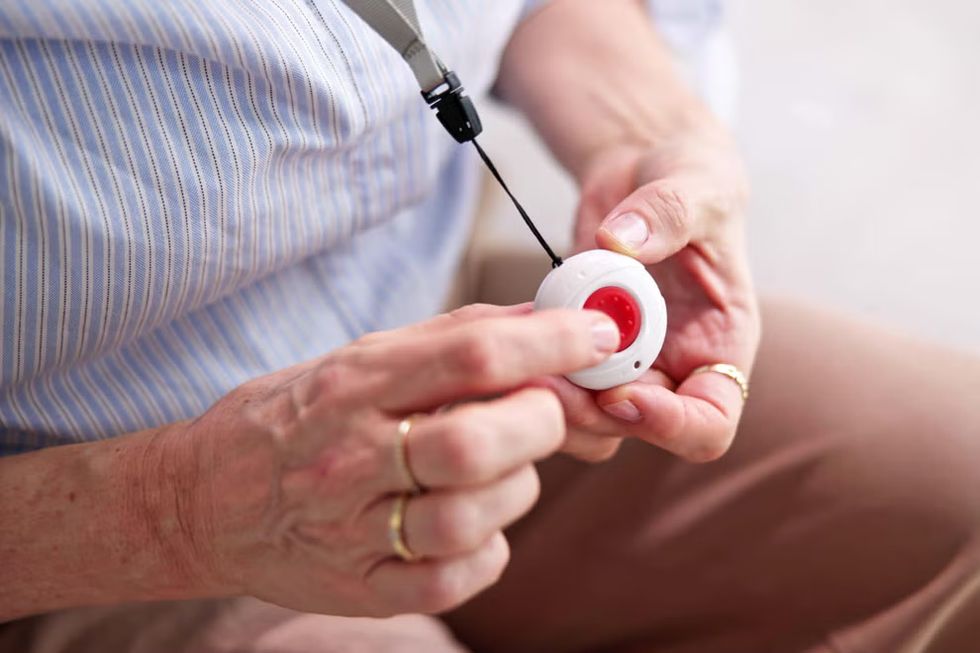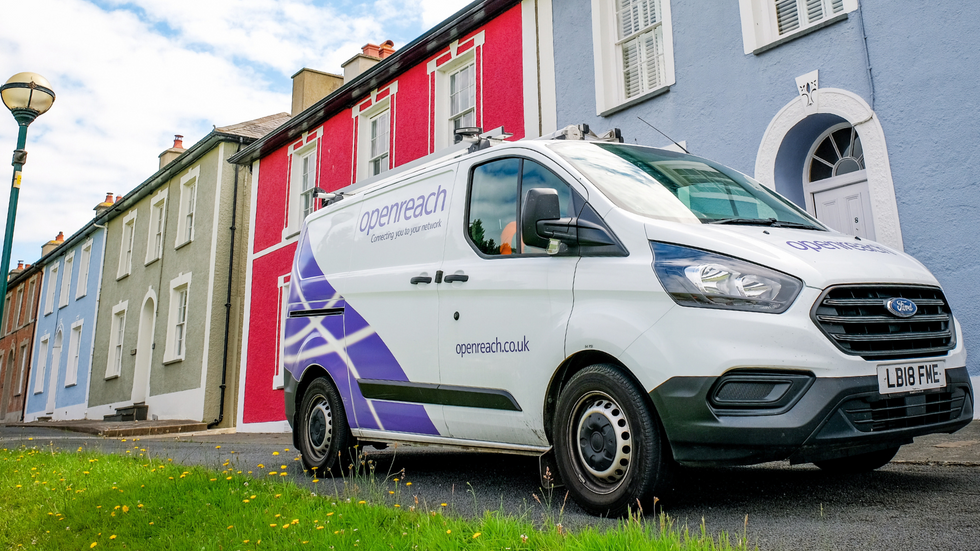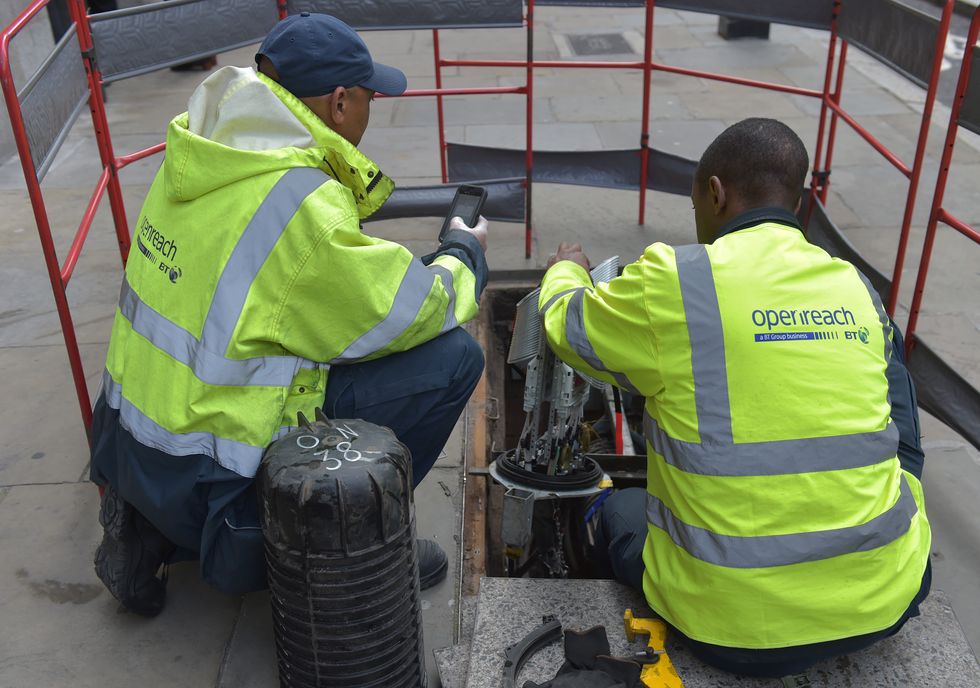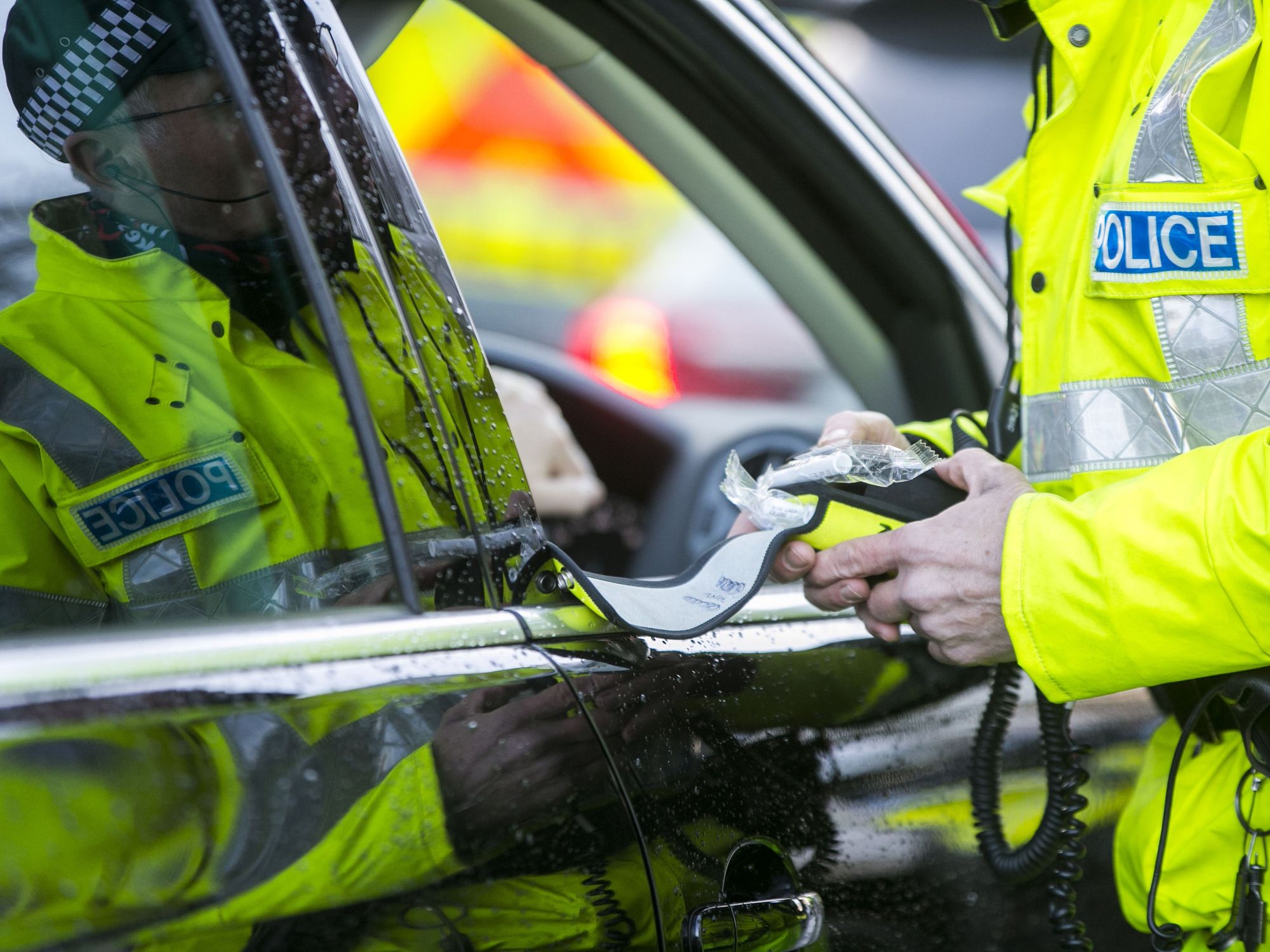BT and Virgin Media could postpone UK landline switch-off by two years due to emergency alarm fall-out
All of the changes coming to traditional copper-based landlines across UK in the next two years, explained in under 5-minutes
|
New timeline is being discussed with UK Government, sources say
- BT and Virgin Media could postpone end of traditional landlines until 2027
- Revised timeline is not yet finalised
- Telecom providers looking into date following issues with telecare devices
- 1.8 million vulnerable people in the UK rely on these emergency alarms
- Government was forced to step-in after alarms broke with new system last year
- UK had planned to switch-off copper-based landlines nationwide by late 2025
Don't Miss
Most Read
Latest
The death of traditional landline telephones across the UK could be postponed by two years, a new report has sensationally claimed.
The original deadline — devised by the biggest telecom companies in the UK, including the likes of BT, Virgin Media, and TalkTalk — would see millions of copper-based landlines switched off by the end of next year. But behind the scenes, companies are racing to put together a new timeline that could push the switch-off until as late as 2027 for some customers, anonymous sources speaking to the Telegraph claim.
BT — the single largest provider of landlines and broadband nationwide — has purportedly informed Rishi Sunak's Government that it's likely to miss its original late-2025 deadline. It's looking at a revised end date for the controversial switchover, which could delay the upgrade works for vulnerable people by two years.
Millions have already been upgraded to the next generation of landlines, powered by the same cable infrastructure as full-fibre broadband. Known as Voice over Internet Protocol, or VoIP, these phone lines should offer clearer call quality and modern features, like placing incoming calls in a queue when you're already speaking on the phone and blocking all withheld numbers.
BT-owned Openreach and Virgin Media are not alone, with many operators across Europe also in the process of ripping up ageing copper-line landlines. These phone lines have been the backbone of communication across the UK for well over 100 years and companies have complained that it's difficult to find the parts required to maintain and repair this Century-old technology.

Personal alarms, often worn around the neck on a lanyard or on a bracelet, can make life-saving calls to emergency services with the touch of a button
|PRESS ASSOCIATION
However, there has been a litany of issues with the process, which saw BT customers lose access to the landline number they’d held for 50 years and others stranded without a landline connection for days.
Broadband-powered landlines have triggered compatibility issues with personal alarms used by an estimated 1.8 million elderly and vulnerable people across the UK — with some critical calls failing.
These personal alarms, often worn on a lanyard around the neck or on a bracelet, are designed to be activated in a health emergency or after a fall. It was concerns around these critical devices that pushed BT and Virgin Media to scrap the original 2025 deadline for all customers nationwide, the Telegraph reports.
A spokesperson for BT told the Telegraph: "We’re working closely with the Government and Ofcom as we continue the important programme to move customers onto digital landlines. Our priority remains doing this safely, supporting our vulnerable customers and those with additional needs in particular, and we’re working with key organisations that represent these groups to achieve that.
"This includes encouraging more local authorities and telecare providers to make us aware of telecare users so we can make sure they get the right support at the right time. The current pause will have an impact on the timing of the overall programme – but we are working to minimise any delays, as the switch to digital landlines is a necessity given the increasing fragility of the analogue landline network.”

Openreach, which is owned and operated by BT, maintains nationwide broadband and phone line infrastructure used by brands including EE, Sky, TalkTalk, Plusnet, and BT
| OPENREACH PRESS OFFICEBT and other broadband suppliers voluntarily paused the roll-out of next-generation landlines following reports of initial problems with telecare devices at the end of last year. Technology Secretary Michelle Donelan summoned the biggest broadband providers in the UK and got them to agree to several tough new measures to protect vulnerable customers.
But now it seems Openreach is working on a new landline system that will restore many of the benefits of copper line phones. This new system will continue to work when Openreach and other broadband suppliers discontinue traditional landlines at the end of 2025 ...or whenever the new timeline dictates.
Household brands like TalkTalk, EE, Plusnet, BT, Vodafone, and Sky Broadband all rely on the infrastructure owned and operated by Openreach nationwide.
The incoming delay to plans, as reported by the Telegraph, seem to ignore as new pilot system devised by BT-owned Openreach to roll-out a new landline phone system that does not require an active broadband connection — that will restore much of the lost functionality of analogue phone lines, which will be cut off nationwide at the end of next year. According to broadband-obsessed blog ISPreview, Openreach has started to inform its partners about plans to pilot the technology from May 1, 2024.
On the surface, this would solve many of the issues with VoIP landlines and resolve any need to delay the original 2025 deadline for all customers. Known as SOTAP, Single Order Transitional Access Product for Analogue, the new Openreach system does not require an active broadband connection. Better yet, it can be rolled out to homeowners nationwide — even those living in areas that have been upgraded to an all-broadband infrastructure.
There's no word on an official launch date for SOTAP, but if trials are set to begin in May, it's highly likely that we'll see customers transition to the new phone line system before the end of the year. If it's set to be the solution for telecare device owners, Openreach will want to get as many vulnerable users switched over before the 2025 cut-off.
SOTAP could enable homeowners with personal alarms that are incompatible with new broadband-powered phone lines or those who don't want a broadband connection to still have a landline phone.
Unlike BT's Digital Voice and other broadband-powered landlines, which won't work during an internet outage or power cut, SOTAP is powered like a traditional copper phone line. That means it will continue to work even during a power cut.
A spokesperson for Openreach confirmed the ongoing trial of the new technology: "Openreach is pleased to announce that the SOTAP (Single Order Transitional Access Product) for Analogue shall move into Pilot Phase from 1 May 2024.
"The move to Pilot Phase is subject to the SOTAP for Analogue Trial meeting Pilot entry criteria ahead of 1 May 2024. Please note, this guidance refers only to the SOTAP for Analogue product currently in trial and not to any other iterations or variants, including the previously announced 'SOTAP' product variant."
When it announced the move to broadband-powered landlines, BT promised the all-digital system woudl offer clearer calls and better protection from fraud and spam calls. If you're already using a full-fibre internet connection at home, nothing will change as the company has offered "Digital Voice" to fibre customers as standard for many years.

BT is in the process of switching off analogue landlines for millions of customers nationwide, transitioning them over to its broadband-powered "Digital Voice" system that relies on VoIP
| BT PRESS OFFICEBT suspended sales of traditional landlines to new customers in September last year. While many of the most popular personal alarm systems do work with digital landlines, a power cut or internet drop-out can cause them to fail, while copper phone lines typically continue to work even during power cuts.
Speaking about a spate of issues around the transition to all-digital phone lines, Consumer watchdog Which? Director of Policy and Advocacy, Rocio Concha said: “We’ve heard of vulnerable people being left unable to contact emergency services due to issues with digital migration, so it is positive that the Government is getting assurances from operators as well as providers that they will protect customers during the switchover.
“The Government and Ofcom must be prepared to take tough action if firms fail to keep up their side of the bargain. The transition to digital landlines is necessary and offers advantages, but it is vital that no-one is left behind as the migration continues.”
BT customers over the age of 70 are not proactively switched to Digital Voice, the company has reassured. But since July 2023, BT has started to trial switching customers aged between 70-74 who live in urban areas and have the latest broadband hub and don't regularly make landline calls. According to BT, these trials have gone well to date, with 98% of customers choosing to make the switch.
LATEST DEVELOPMENTS

Openreach engineers work on a broadband cable buried underneath the pavement. The company maintains infrastructure that connects to almost every home and business in Britain
| PACountdown to the death of traditional copper landlines
1992 – Introduction of the first dial-up internet service to UK customers, Pipex
2000 – First UK home broadband launches in the UK ...and is taken up by a single customer in Essex
2008 – First residential full-fibre broadband connection goes live in a housing development in Ebbsfleet, Kent. It becomes the first place nationwide to use fibre-optic cables directly to the home, with telephone services and broadband delivered over the same cables
2010 – Services with speeds of 30Mbps (megabits per second) are sold in the UK. With this rate of speed, internet users can download or stream music, games or TV shows
2013 – The first ‘fibre only’ exchange goes live in Deddington. The Oxfordshire village was chosen as a pilot location for the first fibre-only exchange
2018 – Plans to retire the old telephone network within seven years are announced. This will see everyone in the UK upgraded to a digital phone line, laying the foundations for the future
2019 – Salisbury becomes the first "Openreach Full Fibre" city in the UK. The Wiltshire city has the fastest citywide network in the UK
2020-2023 – Openreach ends the sale of copper landlines, beginning at an exchange level and then nationally. From September 5th 2023, BT customers across the UK could no longer buy traditional phones
2025 – Retiring the old analogue phone network. By this time, everyone in the UK will be upgraded to a digital phone line – which will use the broadband network to make calls in a similar way to other Voice Over Internet Protocol (VOIP) technologies like Skype, Facetime, and Microsoft Teams











